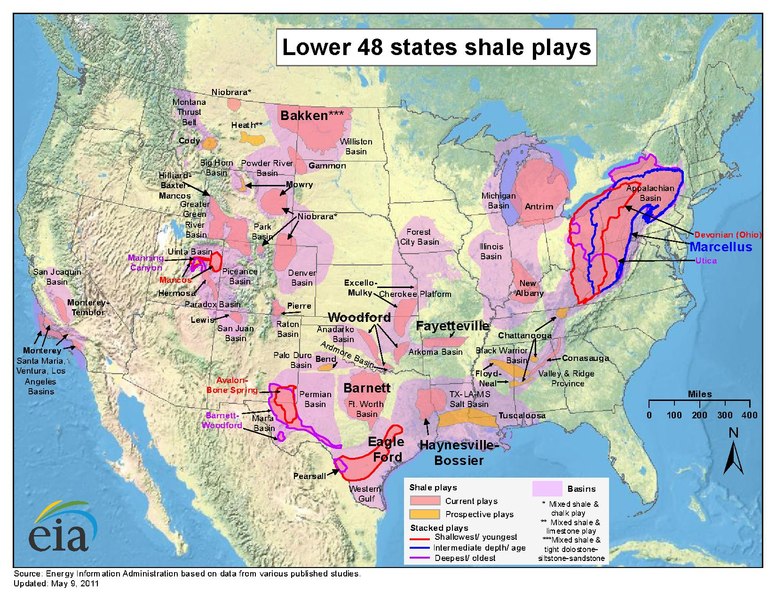
https://oilprice.com/Energy/Energy-General/US-Shale-Is-Gaining-Influence-Over-Oil-Markets.html
OPEC was formed in 1960 by founding members Iran, Iraq, Kuwait, Saudi Arabia, and Venezuela. For a brief period, the petroleum cartel became the dominant force behind world oil prices and a key geopolitical power broker, with its members controlling nearly half of world oil production and more than three-quarters of global oil reserves. As U.S. oil production entered a period of apparently inexorable decline after its 1970 peak, Washington’s desire to shore-up energy security and create a bulwark against communist expansion into the Middle East saw Saudi Arabia become a key U.S. ally. OPEC at the height of its power, in the 1970s, flexed its muscles by cutting oil output causing prices to spiral upward triggering two oil price shocks that sparked global recessions. Since then, OPEC’s power has steadily deteriorated, with that decline accelerating over the last two decades because of rapidly growing non-OPEC oil production, notably in the U.S and Brazil.
The U.S. shale oil boom caused onshore production to swiftly soar after nearly three decades of decline. U.S. crude oil imports from the Middle East plummeted and Congress lifted a four-decade restriction on U.S. oil exports. Even Riyadh’s 2014 plan to regain market share and obliterate the U.S. shale oil industry by opening the spigots and significantly boosting production, causing crude oil prices to enter a sustained decline, failed. In 2018, the U.S. overtook Saudi Arabia to become the world’s largest oil producer, pumping 10.96 million barrels of oil equivalent daily. Since then production, spearheaded by the shale oil industry, has grown with the March 2020 oil price collapse having little sustained material impact on the U.S. shale oil industry. The U.S. Energy Information Administration estimates U.S. 2020 oil production averaged 11.3 million barrels of crude oil daily which, while a 7% decline compared to 2019, is still a notable 29% greater than the 8.8 million barrels produced daily during 2014 during the shale oil boom’s peak. The EIA expects 2021 U.S. oil production to decline by 2% year over year to 11.1 million barrels daily, which is still 26% greater than 2014. The resilience of the U.S. shale oil industry can be attributed to improving technology and expertise which along with growing operational efficiencies has caused breakeven prices to steadily fall. According to the Dallas Federal Reserve, new shale oil wells have an average breakeven price of $46 to $52 per barrel compared to around $77 a barrel in 2014. There is every indication that U.S. shale could surprise energy markets once again during 2021 and keep pumping crude oil at a furious pace regardless of softer prices. U.S. foreign policy is also eroding OPEC’s geopolitical power and ability to manipulate oil prices. Sanctions against Iran and Venezuela are preventing those petroleum-rich nations from expanding oil production or strengthening their influence within the cartel. It also rewards Saudi Arabia by retarding Iran’s economic growth, thereby curtailing Teheran’s influence in the Middle East and cementing Riyadh’s authority as OPEC’s leading producer. The White House’s petro-diplomacy under President Trump highlights OPEC diminishing influence and ability to manipulate oil prices. During 2018 when the Brent had rallied to over $70 and was flirting with $80 per barrel, threatening U.S. economic growth, Trump weighed in exerting pressure on OPEC to boost production keeping prices low. Then in early April 2020, after oil prices collapsed because of the COVID-19 pandemic and looming price war between Saudi Arabia and Russia, threatening the survival of the U.S. shale oil industry, Trump intervened once again. He contacted Riyadh and threatened the withdrawal of U.S. troops unless the Saudi’s cut production to bolster crude oil prices.
Related: Shale Giant Chesapeake Emerges From Bankruptcy
It is not only the rapid growth of U.S. oil production over the last decade which is challenging OPEC’s control over oil prices and geopolitical power. Saudi Arabia’s growing dependence on U.S. support for waging its proxy war against Iran for control of the Middle East and leadership of the Muslim world as well as OPEC has weakened the cartel’s independence and geopolitical power. Riyadh benefits tremendously from Washington’s foreign policy, notably the severe economic and diplomatic sanctions imposed on OPEC members Iran and Venezuela. By denying both countries access to global energy markets they are unable to grow their petroleum production, crimping their influence and giving Saudi Arabia a freer hand with setting cartel policy. That ensures neither Venezuela nor especially Iran can prosper from the increased economic wealth that comes from higher oil production, placing severe pressure on both pariah regimes while bolstering Saudi Arabia’s position. A stronger, but somewhat less independent Saudi Arabia magnifies the effect of U.S. regional policy while giving Washington a more reliable proxy with which to influence regional affairs and maintain control over the Middle East’s vast petroleum resources. This also blunts Moscow’s ability to expand its regional influence through its alliance of convenience with Teheran, which saw both country’s support President Bashar al-Assad’s dictatorial regime during the bloody Syrian civil war. Those developments have given Washington a greater say on OPEC oil production and ultimately prices. This is underscored by Riyadh’s decision to cut one million barrels daily of Saudi Arabia’s oil production to buoy prices and absorb increased Russian output. Not only has Riyadh bolstered oil prices at a critical time, especially for U.S. shale, but indicates the Saudi government seeking to curry favor with the incoming Biden administration.
For those reasons, President Biden must carefully consider whether rejoining the Joint Comprehensive Plan of Action (JCPOA) and removing all U.S. sanctions is the right move, particularly with Teheran enriching uranium in breach of the deal. This is particularly the case when Iran’s recent belligerence and aggression are considered. The Islamic Revolution Guards Corps recently seized a South Korean tanker in the Strait of Hormuz, while Teheran is ratcheting-up support for Venezuelan President Nicolás Maduro’s dictatorial socialist regime despite the massive humanitarian crisis his government has unleashed.
By Matthew Smith for Oilprice.com
Awesome.....
ReplyDeleteseo company in Germany:
seo company in Germany